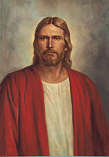
FAIR is a non-profit organization dedicated to providing well-documented answers to criticisms of the doctrine, practice, and history of The Church of Jesus Christ of Latter-day Saints.
mNo edit summary |
mNo edit summary |
||
| Line 74: | Line 74: | ||
:Disciplinary councils may also be convened to consider a member’s standing in the Church following serious transgression such as abortion, transsexual operation, attempted murder, rape, forcible sexual abuse, intentionally inflicting serious physical injuries on others, adultery, fornication, homosexual relations, child abuse (sexual or physical), spouse abuse, deliberate abandonment of family responsibilities, robbery, burglary, embezzlement, theft, sale of illegal drugs, fraud, perjury, or false swearing.<br><br> | :Disciplinary councils may also be convened to consider a member’s standing in the Church following serious transgression such as abortion, transsexual operation, attempted murder, rape, forcible sexual abuse, intentionally inflicting serious physical injuries on others, adultery, fornication, homosexual relations, child abuse (sexual or physical), spouse abuse, deliberate abandonment of family responsibilities, robbery, burglary, embezzlement, theft, sale of illegal drugs, fraud, perjury, or false swearing.<br><br> | ||
:::— Elder M. Russell Ballard, Quorum of the Twelve Apostles<ref name="ballard"></ref> | :::— Elder M. Russell Ballard, Quorum of the Twelve Apostles<ref name="ballard"></ref> | ||
|link= | |||
|subject= | |||
|summary= | |||
|tag= | |||
|link2= | |||
|subject2= | |||
|summary2= | |||
|tag2= | |||
}} | |||
{{FAQ | |||
|q=If "apostasy" is grounds for Church discipline, does this mean members cannot disagree with the Church or its leaders? | |||
|a=No. Apostasy, in the context of disciplinary council, has a very specific meaning: | |||
# Repeatedly act in clear, open, and deliberate public opposition to the Church or its leaders. | |||
# Persist in teaching as Church doctrine information that is not Church doctrine after they have been corrected by their bishop or a higher authority. | |||
# Continue to follow the teachings of apostate sects (such as those that advocate plural marriage) after being corrected by their bishop or a higher authority. | |||
# Formally join another church and advocate its teachings.<ref>''Handbook 1'', 6.7.3</ref> | |||
Any member charged with apostasy would already have been given clear warning that their behavior would put them at risk. Bishops and other leaders would have cautioned the member prior to instigating a disciplinary council, unless the member had refused to meet with them. | |||
|quote=:We could conceive of a man honestly differing in opinion from the Authorities of the Church and yet not be an apostate; but we could not conceive of a man publishing these differences of opinion and seeking by arguments, sophistry and special pleading to enforce them upon the people to produce division and strife and to place the acts and counsels of the Authorities of the Church, if possible, in a wrong light, and not be an apostate, for such conduct was apostasy as we understood the term.<br><br> | |||
::::President George Q. Cannon, First Councilor in the First Presidency (1889–1901)<ref>George Q. Cannon, ''Gospel Truth'' (Salt Lake City: Deseret Book Co., 1974), 493.</ref> | |||
|link= | |link= | ||
|subject= | |subject= | ||
| Answers portal |
| Mormon FAQ |

|
 Frequently Asked Questions about Church Disciplinary Councils
Frequently Asked Questions about Church Disciplinary CouncilsIf you have a question about the whys, hows, or wherefores of Church Discipline in the Church of Jesus Christ of Latter-day Saints, our FAQ has the answer.
Whenever this [stake high] council convenes to act upon any case, the twelve councilors shall consider whether it is a difficult one or not; if it is not, two only of the councilors shall speak upon it....But if it is thought to be difficult, four shall be appointed; and if more difficult, six; but in no case shall more than six be appointed to speak. The accused, in all cases, has a right to one–half of the council, to prevent insult or injustice. And the councilors appointed to speak before the council are to present the case, after the evidence is examined, in its true light before the council; and every man is to speak according to equity and justice. Those councilors who draw even numbers, that is, 2, 4, 6, 8, 10, and 12, are the individuals who are to stand up in behalf of the accused, and prevent insult and injustice.
|

FAIR is a non-profit organization dedicated to providing well-documented answers to criticisms of the doctrine, practice, and history of The Church of Jesus Christ of Latter-day Saints.
We are a volunteer organization. We invite you to give back.
Donate Now